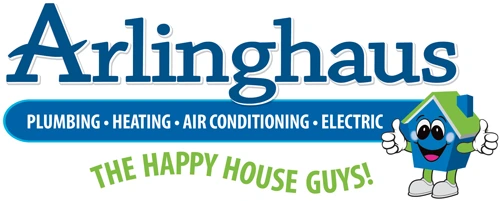Summer is full of heat waves that make you long for the coolness of the fall or maybe even a snow day. It’s hot days like these that make us ask, “what did we ever do before air conditioning?”
It turns out that your air conditioner does a lot more for you than just take the edge off the outside temperature. As part of a ventilation system, your HVAC improves your indoor air quality and serves a major purpose protecting the health of you and your family. But what exactly do you need to know about improving your indoor air quality and how it affects your family’s health and happiness?
What Is Indoor Air Quality?
When you read about air quality, you often think about pollution and emissions in the outdoors. You might not imagine your living room as having the same kinds of pollutants as those outside. However, anything that is outside can come in. Simply put, your indoor air quality is the quality of the air inside any particular space. It changes based on the home’s construction, its contents and the environment surrounding the home. You might have a different air quality in one room compared to other rooms in the home. If you have ever spent time scrubbing with a harsh cleanser in the bathroom and wished you had turned on the fan, you understand how indoor air quality can change dramatically in a short amount of time. The ventilation in your home is probably the most important component of protecting your indoor air quality, in addition to the way you maintain your home.
Why Is Indoor Air Quality a Concern?
You and your family spend about 90 percent of your time inside various buildings, primarily your home. Think about it this way: if you only spent enough time in your home to get ready for bed, sleep and get ready to leave, you would still spend well over one-third of your life in your house. Any space where you live most of your life calls for extra attention. Without the right approach to ventilation and indoor maintenance, your home could become a concentrated source of pollutants from your indoor and outdoor environment. This leads many experts to argue that indoor air quality may be at least 10 times worse than the air outside.
There are two different kinds of pollutants that can enter your home and affect your health. The first is particulates, like dust or mold. The second is gaseous, which may not be visible to you but can still harm your health. These pollutants can act as allergens to aggravate asthma or other allergic reactions, or they may actively poison you such as carbon monoxide. Indoor air quality directly affects your risk of developing conditions such as heart disease or cancer. Mold spores pass through the air and can get into your lungs relatively easy. The possibility of developing pneumonia because of mold is very concerning, but even that is not as scary as a buildup of carbon monoxide, which could kill you. In fact, the World Health Organization estimates that 4.3 million people die each year worldwide as a result of indoor pollutants. Most of them suffer illnesses due to cooking food indoors using wood, charcoal or coal.
How Do I Know if My Indoor Air Quality Is Compromised?
Summer is one of the worst times for outdoor air quality because of increased energy consumption and carbon emissions. You may be tempted to turn off your air conditioner at times to avoid spending so much money on energy. However, turning off the air conditioner also eliminates much of your home’s ventilation, as well as allowing the humidity in your home to rise. Humidity attracts particulate matter to moist spaces, which promote mold growth. You know that you have a problem when you notice damp walls or more obvious signs of mildew or mold, but it’s hard to spot mold growth before it becomes a real problem. And cleanup is absolutely necessary.
There are a few risk factors for poor indoor air quality that you should be able to identify quite handily. The first and most important is poor ventilation. For example, if you have a gas stove and running the fan above the stove does not seem to get rid of the scent of natural gas, you may have a ventilation concern. Second, air leaks bypass your home’s ventilation to allow pollutants to enter. Gaps around your windows and doors, or small holes in your roof or exterior walls, could be a major problem over time. Third, carpeted floors and too much clutter also give particulates a place to hide. Fourth, just take a good look at your family’s health. If you seem to suffer from constant colds or chest congestion that never seems to get better, there is a good chance that your indoor air quality is at least partly to blame.
How Does My Home Manage Indoor Air Quality?
Any modern home has a number of systems designed to keep your indoor air quality at a minimum level. Ventilation is a broader term that may describe more than one system. For example, your HVAC system offers ventilation that pulls air from the indoors and releases it outside. You may have a similar ventilation system for your bathrooms, kitchen, wood-burning chimney and more. Your air conditioner uses a filter that is built to remove certain particles from the air coming from the outside before it is distributed throughout your home. This is also true if you have a heat pump or a window air conditioner.
These systems are only as good as their use, however. If you go on vacation and turn off your air conditioner as you leave to save money on your utilities, your home will not receive the degree of ventilation it needs while you are gone. You must also consider the filtration. There are different types of filters available for your air conditioner, and some are better than others at preventing particles from infiltrating your air. If you or your children have asthma, like 24 million other Americans, you may need a higher degree of filtration. Ultimately, however, you have to monitor the filter. Once it gets clogged, it loses the ability to filter the air effectively.
What Can I Do to Improve My Home’s Indoor Air Quality?
Fortunately, there are a lot of simple ways to improve your indoor air quality without ever having to mess with your air conditioner. At least once a year, hire an HVAC professional to service your air conditioner. They will change the filter and talk to you about improving your indoor air quality. This maintenance is ideal because it takes the hassle and responsibility off your shoulders. For the cost of a couple family dinners out, you can ensure that your air conditioner works in top condition and help make everyone in your family healthier.
The other tasks you should consider relate directly to what you allow in the home. Plan to move or dispose of pollutants currently stored in the living spaces of the home. Make sure that you turn on a fan when you are cleaning, painting or doing any activity that can release noxious fumes. If you have carpet, consider exchanging it for flooring that is easier to keep clean and free of dust, pet dander and other debris. Before you throw open the windows or doors to let in some fresh air, check your local Air Quality Index to see if it would be better to turn on a fan instead.
You might not have guessed that your indoor air quality could be a good deal worse than the air outdoors. However, it is true in millions of homes. By understanding how your indoor air quality is affected by your lifestyle and your environment, you can better appreciate the way your home removes pollutants, and identify when your air quality is compromised. With just a little planning and preparation, you can minimize health problems and enjoy next summer even more than this one.


